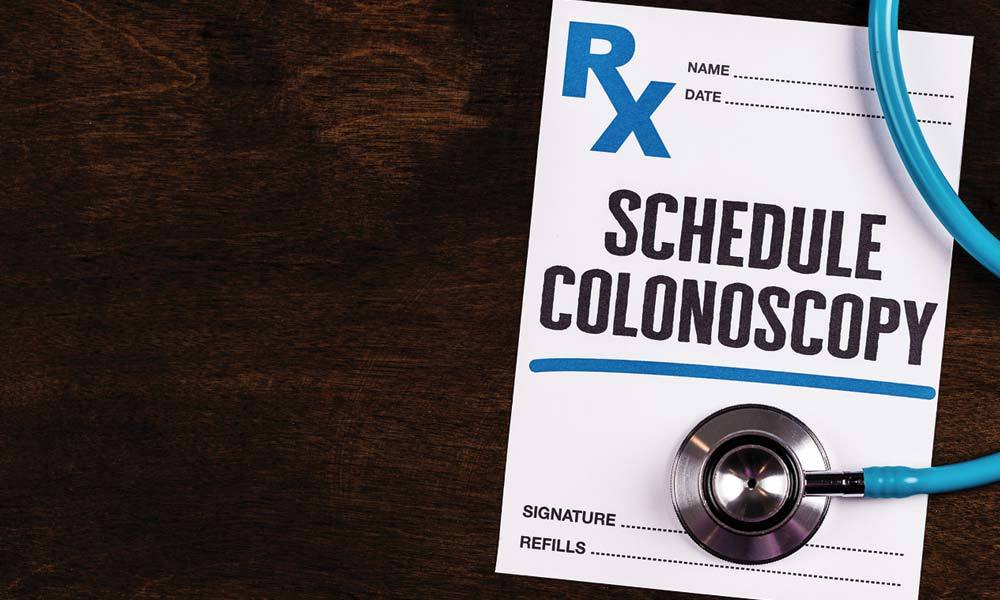
Updated Guidelines and Colon Cancer Risks
For many years, doctors have been urging their patients to have their first colon cancer screening at age 50. However, due to a recent rise in colon cancer cases for those under 50, the American Cancer Society has now revised its guidelines, advising patients to have their first colon cancer screening at age 45. As an informed patient, there are a few things you should know about colon cancer risk and prevention, and also if your insurance company covers this test.
An Increase in Cancer Cases
Over the last few decades, there has been a slow, but steady, rise in cases of colon cancer for those under age 50. While colon cancer rates in adults 55 and over have declined, adults born in 1990 or later have twice the risk of contracting colon cancer when compared to their parents. While there isn’t a clear recommendation of the battery of screening tests one should get at age 45, doctors and researchers alike generally agree that a colonoscopy is a good first step to determine if there is anything abnormal.
Knowing the Risks
As colon cancer is quite preventable in most cases, it’s a good idea for adults to understand the known risks so they can make lifestyle changes. Of course, some risk factors are genetic—but knowledge is power, and you can always inform your doctor once you’re aware of the risks.
When it comes to risk factors that you have the ability to change, diet and exercise are two of the easiest to adjust. According to scientific studies, a diet high in red meat, such as beef, pork, and lamb, is associated with a higher risk of colon cancer. Remember that these dietary guidelines apply to both men and women. While it’s true that you need your protein, there are other ways to find it, and doctors recommend you limit your weekly intake of red meats. Look to beans, poultry, and grains like quinoa instead. Occasionally, red meat is okay, but it should not be a staple of your daily diet.
Obesity and lack of exercise is also associated with higher risks of colon cancer. If you’re able to exercise—even taking brisk walks—just a few times per week, it limits your risk for colon cancer (and other health problems).
General bad habits correlate with colorectal cancer as well. Smoking and alcoholic/heavy drinking are both serious risk factors. If you have trouble quitting either alcohol or cigarettes, it’s a good idea to reach out to your primary physician in order to get support and help.
There are, of course, genetic risk factors that you cannot change. These include a history of colorectal polyps or cancer in the family, or other diseases, such as type 2 diabetes, inflammatory bowel disease, or inherited syndromes such as Lynch syndrome or Gardner syndrome.
Knowing the Symptoms
If you’re experiencing symptoms you feel may be related to the beginning of colorectal cancer or another type of cancer, you should contact your physician immediately. Early warning signs of colon cancer can include symptoms such as a sudden change in bowel habits or stomach problems like cramping and belly pain.
No matter your age, you should contact your physician right away if you notice a sudden change in stool. This includes, but is not limited to: dark stools, constipation, and diarrhea, as well as obvious reg flags, such as blood in the stool or rectal bleeding. Fatigue or sudden weight loss can be early warning signs as well, and while these symptoms may or may not be the beginnings of colon cancer, they are hallmarks of something wrong within the body, and it’s best to check with your doctor.
Unfortunately, symptoms of colon cancer often occur after the disease has advanced. Like other types of cancer, it is separated into stages, with stage IV (4) being the most serious. This is what makes screenings so important.
If you have a history of colon cancer in the family, or have other risk factors, the change in screening age is very important to you. However, it must be noted that most insurance companies have not made a formal declaration on whether they will cover earlier screenings. If you feel you are at risk and want to schedule a screening before age 50, it’s a good idea to check with your insurance company prior to the procedure. At this stage, each patient must verify their individual coverages.
If you want to learn more about colon cancer risk factors and symptoms, or want to schedule an appointment for a screening, the doctors and support staff at Asheville Gastroenterology would be happy to assist. If you’re between the ages of 45 and 50, or you have identifiable risk factors, an early screening can help ease your mind.